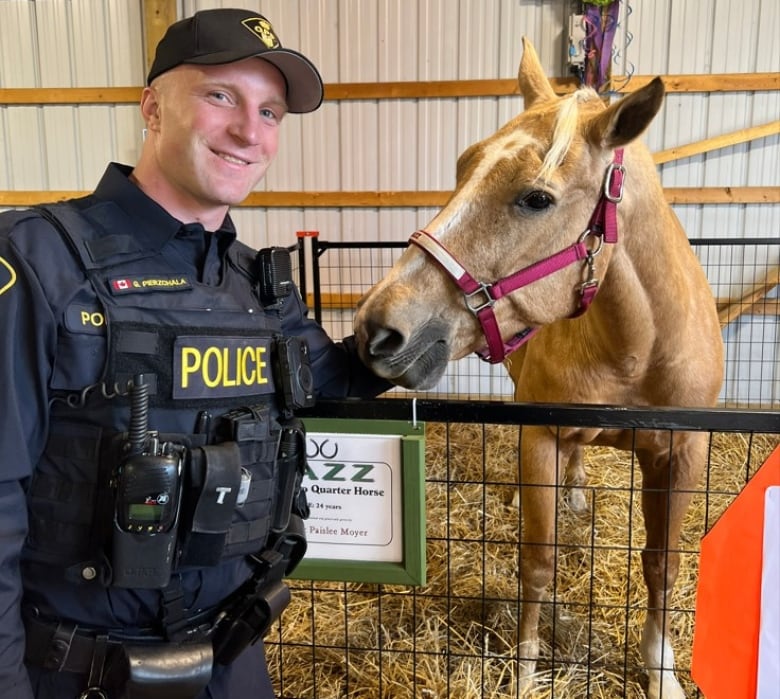Conservative MPs say the federal government’s attempts to reform the justice system “went too far,” as they pressed the Liberals to toughen the country’s bail system.
The party presented an opposition day motion in the House of Commons on Thursday morning that calls for stricter bail conditions for repeat offenders and for the government to repeal parts of Bill C-75.
Passed into law back in 2019, that bill aimed to modernize the bail system and reduce the overrepresentation of racialized people in prison.
“They went too far and they made the bail system too weak and now police officers are dying,” said Raquel Dancho, the Conservatives’ public safety critic, during a news conference on Thursday morning.
Randall McKenzie, who has been charged with first-degree murder in the fatal shooting of Const. Grzegorz Pierzchala on Dec. 27, was out on bail and had a lifetime ban from owning a firearm.
“Bill C-75 brought in, in essence, a default position that courts and police would facilitate bail,” said Dancho.
“That’s the default position now for violent criminals and we don’t believe that’s the way it should be. When it comes to repeat violent offenders it should be more difficult for them to get bail.”
The Conservatives are also demanding the government aim existing laws “so that those who are prohibited from possessing firearms and who are then accused of serious firearms offences do not easily get bail.”
Bail policy under scrutiny
Their motion comes amid a growing conversation about Canada’s bail policy.
Earlier this year, Canadian Police Association president Tom Stamatakis said there is a need for reforms to address the cases of violent offenders who engage in criminal activities repeatedly.
“We recognize that the majority of offenders don’t reoffend,” he said. “There are a small number of prolific and violent offenders who continue to present a danger to society when released, and we need to find common-sense reforms that will address those cases.”
Critics argue stricter rules around bail would jam up Canada’s prison systems with people who have not yet been proven guilty and could violate Canadians’ rights.
A person accused of a crime is presumed innocent until they are proven guilty. Granting them bail means they can remain out of jail, often with conditions, while their case moves through the justice system — a process that can take many months. Bail often
Under the Charter of Rights and Freedoms, accused people in Canada have the right to bail unless there is a very compelling reason to keep them in custody.
It’s up to police and prosecutors to make the case against granting bail, although certain offences like murder have a “reverse onus,” meaning the accused has to convince the court to release them.
Dancho told reporters Thursday the Conservative motion is aimed at “repeat violent offenders.”
Premiers say bail should be harder for firearm offences
In a Jan. 13 letter to Prime Minister Justin Trudeau, the 13 premiers said they wanted to see a specific change that would make bail harder for those accused of a charge related to the offence of possession of a loaded prohibited or restricted firearm. They also called for a review of other firearms-related offences.
The premiers specifically call for the creation of a “reverse onus” for those charged under Section 95 of the Criminal Code, which includes offences for being in possession of a loaded prohibited or restricted firearm.
Trudeau says his government is looking “carefully” at the premiers’ letter.
Canada has seen an increase in violent crime, according to Statistics Canada’s latest figures. The federal agency tracks what it calls a violent crime severity index, which takes into account both the volume and the seriousness of violent crime.
The index rose in 2021, largely due to more police-reported sexual assaults, sexual violations against children, homicide, extortion, harassing and threatening behaviours, and violent firearm violations, said Statistics Canada.


